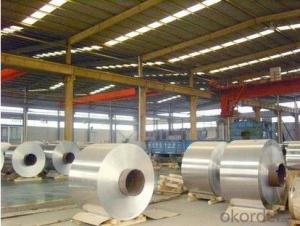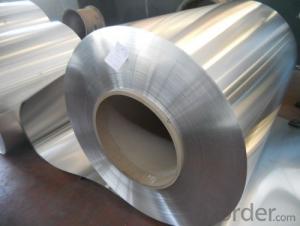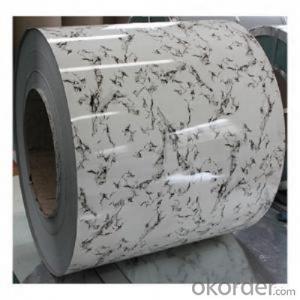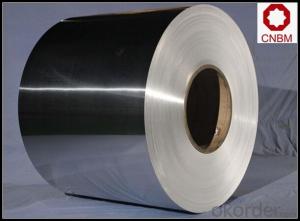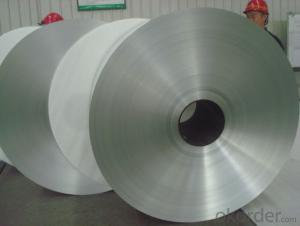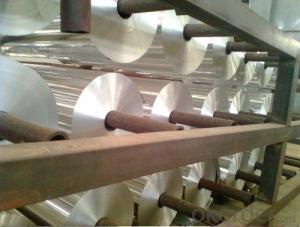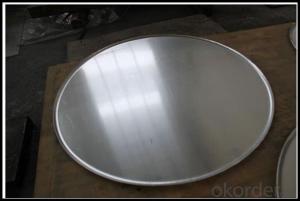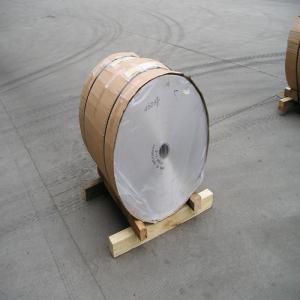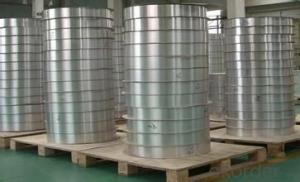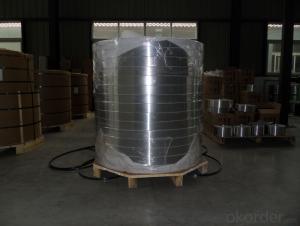PVDF Coated ASTM Grade 1060 Aluminum Strips Belt for Solar
- Loading Port:
- Shanghai
- Payment Terms:
- TT OR LC
- Min Order Qty:
- 5 m.t.
- Supply Capability:
- 500 m.t./month
OKorder Service Pledge
OKorder Financial Service
You Might Also Like
Specification
ASTM Grade 1060 Aluminum Strips Belt For Solar
aluminum coil specifications:
1) Alloy :1050, 1060,1100, 3003 3004 3105 3A21 5005 5052 etc
2) Temper: O/H12/H14/H1/H18/H32/H34/H36/H38//H111/H112/H116/H321/T6/T651/T3/T351 etc
3) Thickness: 0.1mm to 6mm
4) Width:20mm to 3300mm
5)Coil weight: 100kgs to 6 tons depends on actual requirement
6)Core material: Aluminum or paper
7)Coil Inner diameter: 75mm, 150mm, 200mm, 300mm, 405mm, 505mm or as required
8) Protective film can be added
item | 3003 Aluminum coil | |
Standard | GB/T3190-2008,GB/T3880-2006,ASTM B209,JIS H4000-2006,etc | |
Material | 1060,1050,1100 3003,3103,3004,3005,3105 5052, 5454,5754 | |
Size | Thickness | 0.5mm-3.5mm |
Width | 800-1500mm | |
Weight/Roll | About 1.5MT/3MT | |
Quality control | Mill Test Certificate is supplied with shipment, Third Part Inspection is acceptable. | |
Surface | Bright, polished, hair line, brush, checkered, embossed, etc | |
Trade terms | Price term | ,FOB, CNF, CIF, etc |
Payment Term | TT,L/C | |
MOQ | 2MT | |
20 GP Capacity | About 20-25MT | |
Delivery time | 1.The products will delivery immediately after receiving the payment. 2.According to the order quantity, prompt delivery. | |
Export to | Ireland,Singapore,Indonesia,Ukraine,Spain,Canada,USA,Brazil,Thailand,Korea,Iran,India,Egypt,Kuwait, Oman,Viet Nam, South Africa, Dubai, Russia, etc | |
Package | Stick blue film→plastic film→waterproof paper→1~2 tons on a export standard pallet(corner protection) | |
Application | 1)Further making utensil.2)Solar reflective film3)The appearance of the building4)Interior decorating:ceilings,walls,etc.5)Furniture cabinets6)Elevator decoraction7)Signs,nameplate,bags making.8)Decoration inside and outside the car9)Household appliances:refrigerators,microwave ovens,audio equipment,etc.10)The consumer electronics:mobile phones,digital cameras,MP3,etc. | |
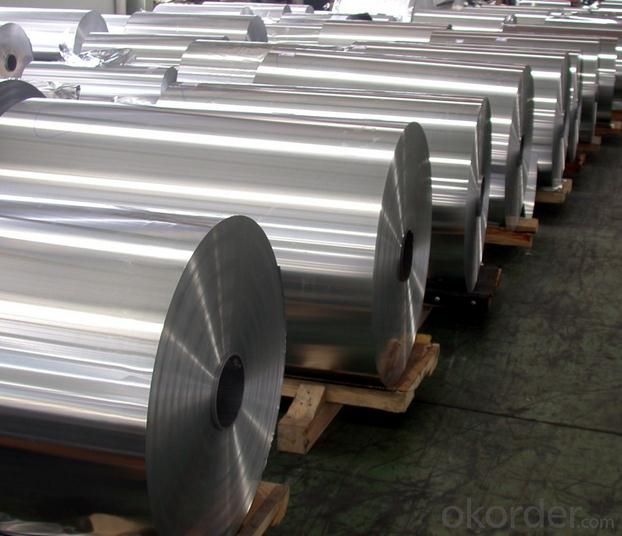
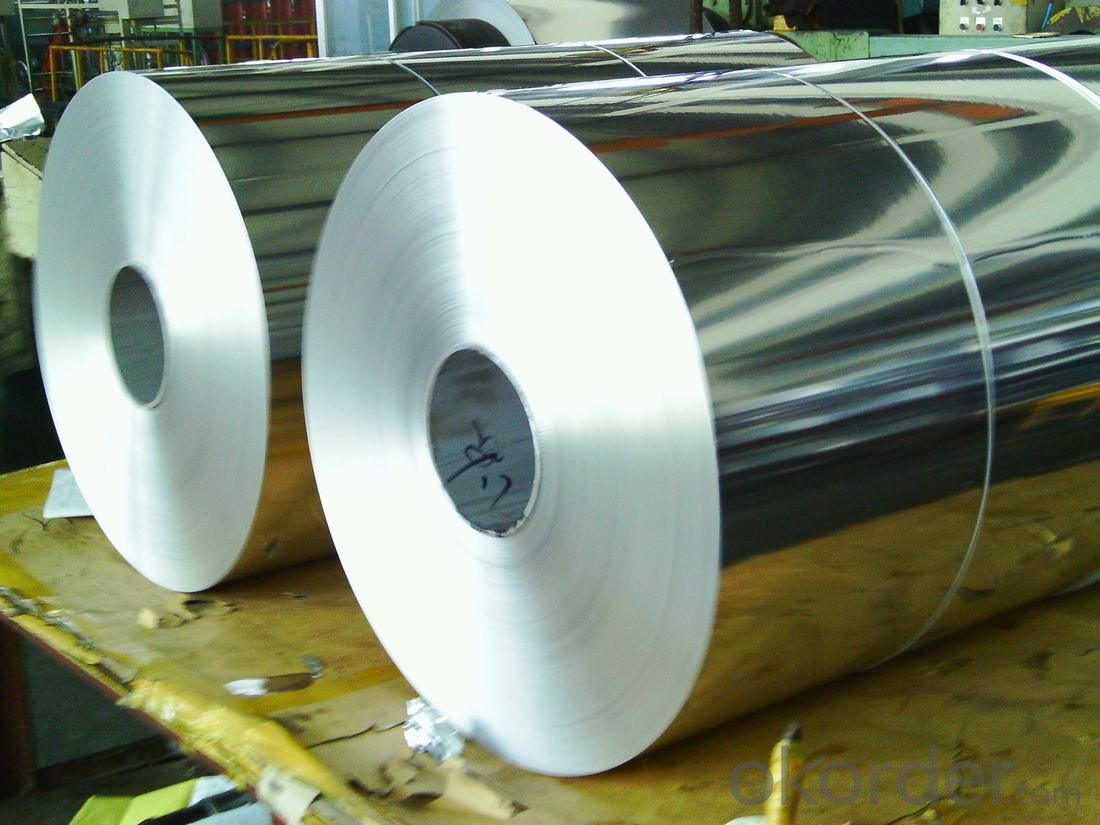
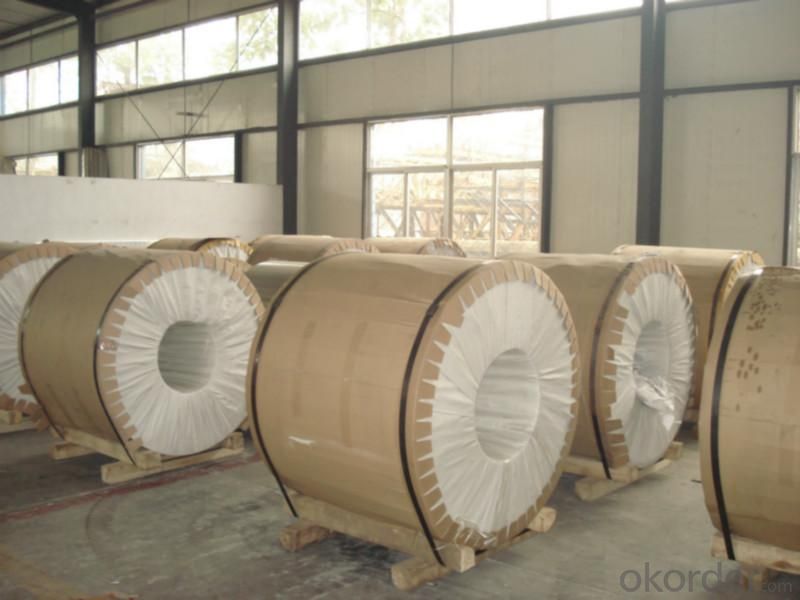
- Q: How much of a difference does it make? I recently bought a 700 SPS tactical in 308. It has the Houge pillar bedding stock. I love the tacky feeling rubber outside, but noticed that the fore end of the stock flexes a bit (enough to touch the free floating barrel.) I was wondering if the aluminum bedding block version of the same stock (or any other aluminum bedding stock) will be better? I know they cost more, and the experts claim they're great, but will an amateur shooter notice the difference? I like to target shoot, typically around 200 yards. BTW, I was also considering the Bell and Carlson medalist.
- Vote for the Aluminum yet somewhat might like a silver lined one bless by using a Catholic priest that emits holy water. That way in case they are additionally a vampire you nailed them.
- Q: Can aluminum coils be used in the production of signage?
- Yes, aluminum coils can be used in the production of signage. Aluminum is a versatile and durable material that is commonly used in the signage industry due to its lightweight nature, corrosion resistance, and ability to withstand various weather conditions. Aluminum coils can be easily shaped, cut, and formed into different shapes and sizes, making it ideal for creating custom signage. Additionally, aluminum coils can be coated with different finishes, such as paint or powder coating, to enhance their appearance and provide extra protection against fading and scratching. Overall, aluminum coils are a popular choice for signage production due to their versatility, durability, and aesthetic appeal.
- Q: Can aluminum coils be used for heat dissipation purposes?
- Yes, aluminum coils can be effectively used for heat dissipation purposes. Aluminum is an excellent conductor of heat, with high thermal conductivity and low thermal resistance. This makes it an ideal material for transferring heat away from a source and dissipating it into the surrounding environment. Aluminum coils are commonly used in various applications such as refrigeration, air conditioning, radiator systems, and heat exchangers. The coils are designed to maximize the surface area available for heat transfer, allowing for efficient cooling and dissipation of heat. Additionally, aluminum is lightweight and corrosion-resistant, making it a practical choice for heat dissipation in various industries. Overall, aluminum coils are a reliable and efficient solution for heat dissipation purposes.
- Q: Are aluminum coils available in custom sizes?
- Indeed, custom sizes for aluminum coils are readily obtainable. Aluminum coils exhibit great versatility and can be produced to satisfy particular size specifications. This adaptability enables their utilization in a diverse array of industries. Be it for HVAC systems, transportation, construction, or any other purpose, aluminum coils can be specifically tailored to suit the unique requirements of any given project. The provision of custom-sized aluminum coils guarantees an impeccable fit and outstanding performance, thereby promoting enhanced efficiency and cost-effectiveness.
- Q: How to calculate the weight of strips with the weight of aluminum coil known?
- Thickness*width*length=weight/density, length=weight/(density*thickness*width).Ps: Keep unit the same.
- Q: Are aluminum coils suitable for gutter systems?
- Yes, aluminum coils are suitable for gutter systems. Aluminum is a popular choice for gutter material due to its durability, lightweight nature, and resistance to rust and corrosion. It is also easy to work with and can be customized to fit various gutter sizes and shapes.
- Q: Are there any recycling programs for used aluminum coils?
- Yes, there are recycling programs available for used aluminum coils. Many recycling centers and scrap yards accept aluminum coils for recycling, as aluminum is a highly recyclable material.
- Q: Can aluminum coils be used for heat sinks?
- Yes, aluminum coils can be used for heat sinks.
- Q: Can aluminum coils be used in the production of automotive parts?
- Indeed, automotive parts can be produced using aluminum coils. As a lightweight and highly malleable metal, aluminum is an excellent choice for manufacturing various components in the automotive industry. Body panels, hoods, fenders, doors, and even engine parts can all be fabricated using aluminum coils. The utilization of aluminum in this sector presents several benefits, such as enhanced fuel efficiency, superior performance, and reduced vehicle weight. Furthermore, aluminum coils are easily manipulable and can be shaped into intricate forms, allowing for greater design adaptability in the manufacturing of automotive parts. In conclusion, the use of aluminum coils has become increasingly popular in recent years and is now a common practice in the production of automotive components.
- Q: Is it possible to use a saw to cut aluminum coils?
- <p>Yes, aluminum coils can be cut with a saw, but it's important to use the right type of saw. A hacksaw or a fine-toothed metal cutting saw is suitable for cutting aluminum. Lubrication is also crucial to reduce friction and prevent the saw blade from overheating. When cutting aluminum, it's advisable to use a cutting fluid or a light machine oil to keep the blade cool and ensure a clean, smooth cut. Always follow safety precautions and wear appropriate protective gear when cutting metal.</p>
Send your message to us
PVDF Coated ASTM Grade 1060 Aluminum Strips Belt for Solar
- Loading Port:
- Shanghai
- Payment Terms:
- TT OR LC
- Min Order Qty:
- 5 m.t.
- Supply Capability:
- 500 m.t./month
OKorder Service Pledge
OKorder Financial Service
Similar products
Hot products
Hot Searches
Related keywords
